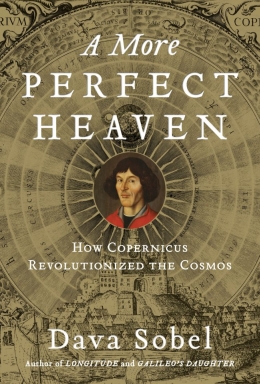What would you do when you discover something so revolutionary as to shatter the fundamental belief that had shaped and guided civilization over the ages? In modern times, of course, you’d want to let the whole world know about your discovery and be done with it. But during the Middle Ages in Europe, when you could be put to death at stake for ideas that challenged religious wisdom, you’d most likely cower in mortal fear of your own discovery and just keep it to yourself until your dying day.

This was the precisely the fate that befell the cleric Nicolaus Copernicus when, simply from intuition and mathematics, he came up with his heliocentric theory of the universe—that contrary to prevailing belief, it was the Sun and not Earth that was the center of the universe, and that Earth, along with the other planets, was spinning around the sun and not the other way around. But so fearful was he of the public reaction to this theory that he held off its publication for over 29 years until practically the end of his life.
The story of how Copernicus was prevailed upon by a young German mathematician, Georg Joachim Rheticus, to publish his theory and proof despite the danger to his well-being is told in compelling and deeply human terms in Dava Sobel’s recently released book,
A More Perfect Heaven: How Copernicus Revolutionized the Cosmos (Walker & Company, 288 pages). It is a taut, highly readable biography that blends history and Sobel’s fictionalized two-act play of how Rheticus eventually convinced Copernicus to finish his manuscript and publish it.
Sobel’s book chronicles that even as Copernicus performed his duties as a highly placed administrator in the Polish government and church, he rigorously marshaled proof for his theory through astronomical measurements of eclipses, full moons, and shifts in the position of the stars. But, as Sobel observes, Copernicus died without seeing the fruits of all that work: “He held off publishing his theory for so long that when his great book,
On the Revolutions of the Heavenly Spheres, finally appeared in print, its author breathed his last. Copernicus never heard any of the criticism, or acclaim, that attended
On the Revolutions. Decades after his death, when the first telescopic discoveries lent credence to his intuitions, the Holy Office of the Inquisition condemned his efforts.”
Read Julia Keller’s “If an engine can be a hybrid, why not a book?” in ChicagoTribune.com now!Read Julianne Douglas's review of Dava Sobel’s “A More Perfect Heaven” now! Read Mike Brown’s review of Dava Sobel’s A More Perfect Heaven in WashingtonPost.com now! THIS REVIEW BY MIKE BROWN NOW HAS A PAYWALLABOUT THE AUTHOR:Dava Sobel is a writer of popular expositions of scientific topics. Her works include
Longitude: The True Story of a Lone Genius Who Solved the Greatest Scientific Problem of His Time (1995),
Galileo’s Daughter: A Historical Memoir of Science, Faith, and Love (2000), and
The Planets (2005). Sobel made her first foray into teaching at the University of Chicago as the Vare Writer-in-Residence in the winter of 2006, handling a one-quarter seminar on writing about science.
ANOTHER INTERESTING READING:In “The Mechanic Muse: Do Androids Dream of Electric Authors?”, an article that came out in the October 14, 2011 issue of
The New York Times, Pagan Kennedy writes about a new publishing business that extrudes thousands of paperbacks every year using content available without cost on the Internet. She came to know about the business when she stumbled across a book on Amazon called “Saltine Cracker,” co-edited by one Lambert M. Surhone who, Amazon claimed, had written or edited more than 100,000 titles on every conceivable subject. “Just looking at the numbers,” Kennedy observed, “you could argue that he’s one of the most prolific creators of literature who ever lived. But was he even human?”
Read Pagan Kennedy’s “The Mechanic Muse” in The New York Times now!